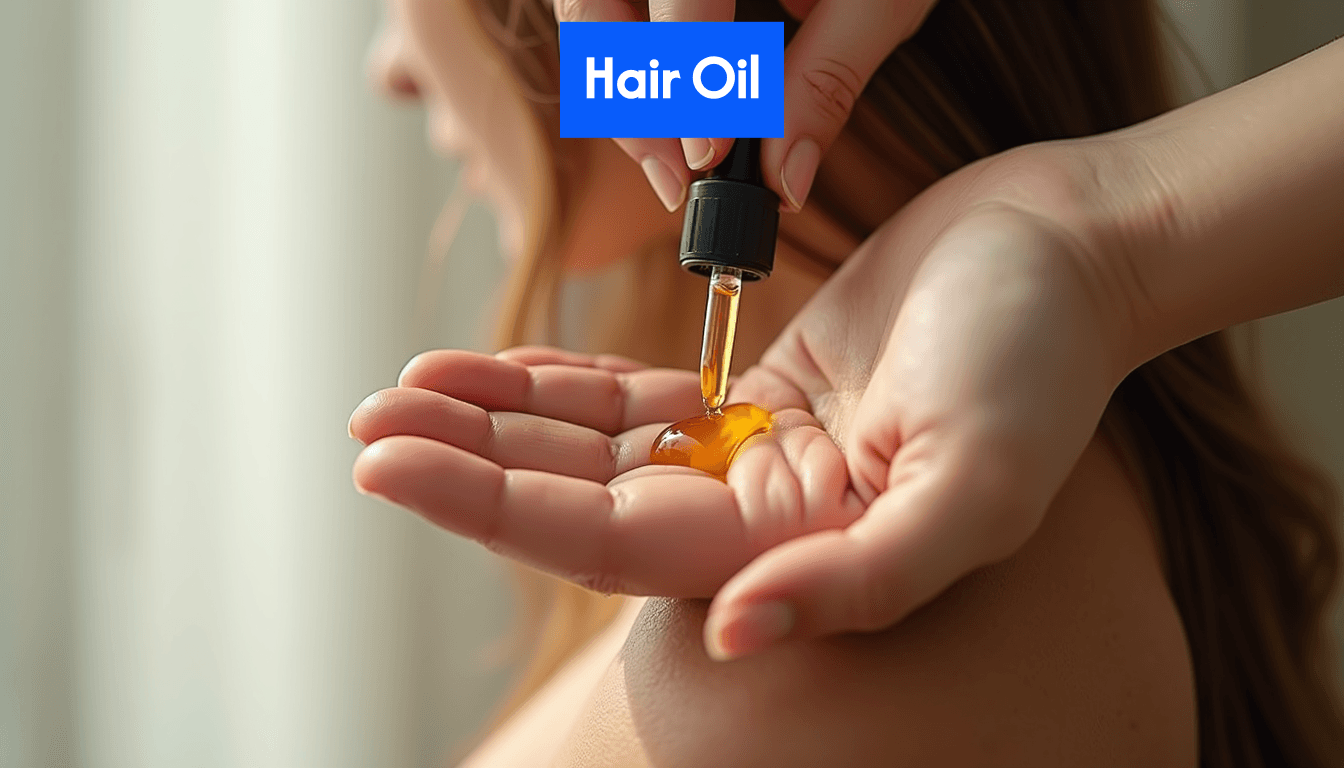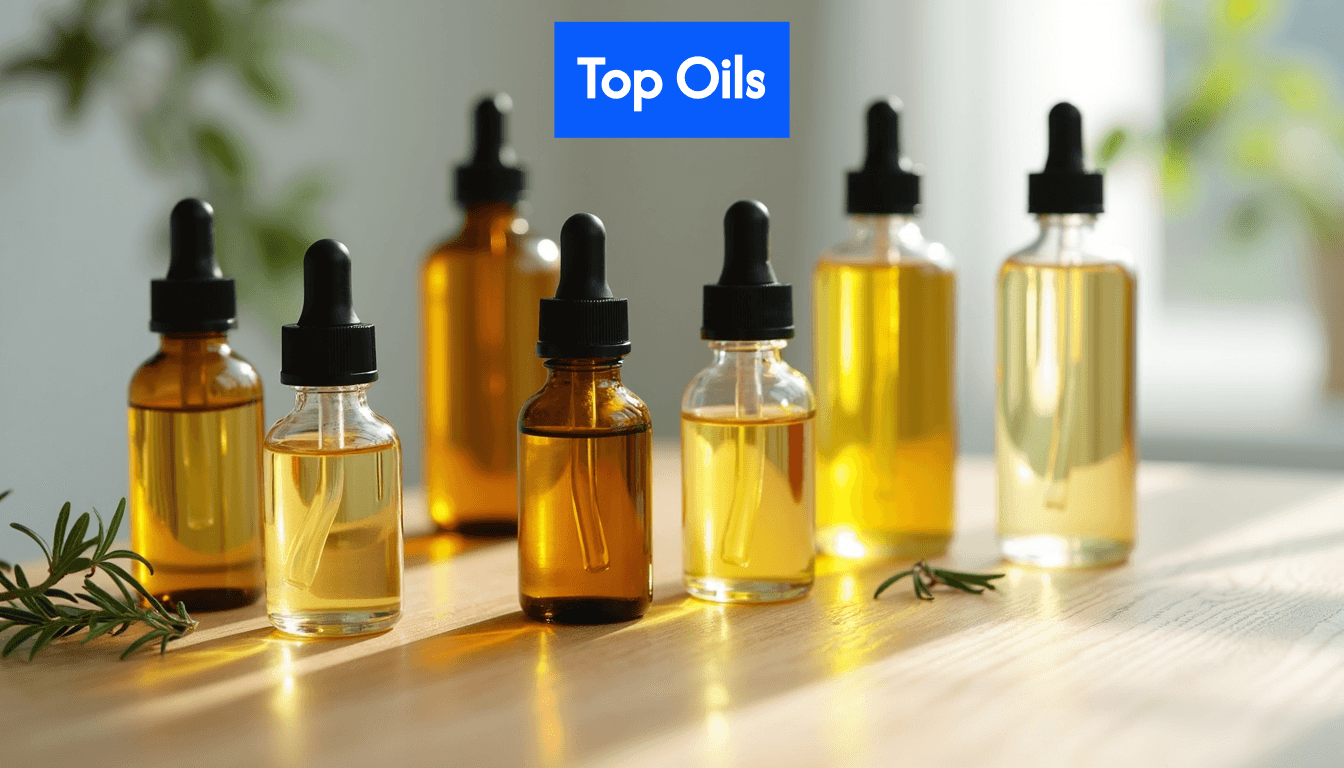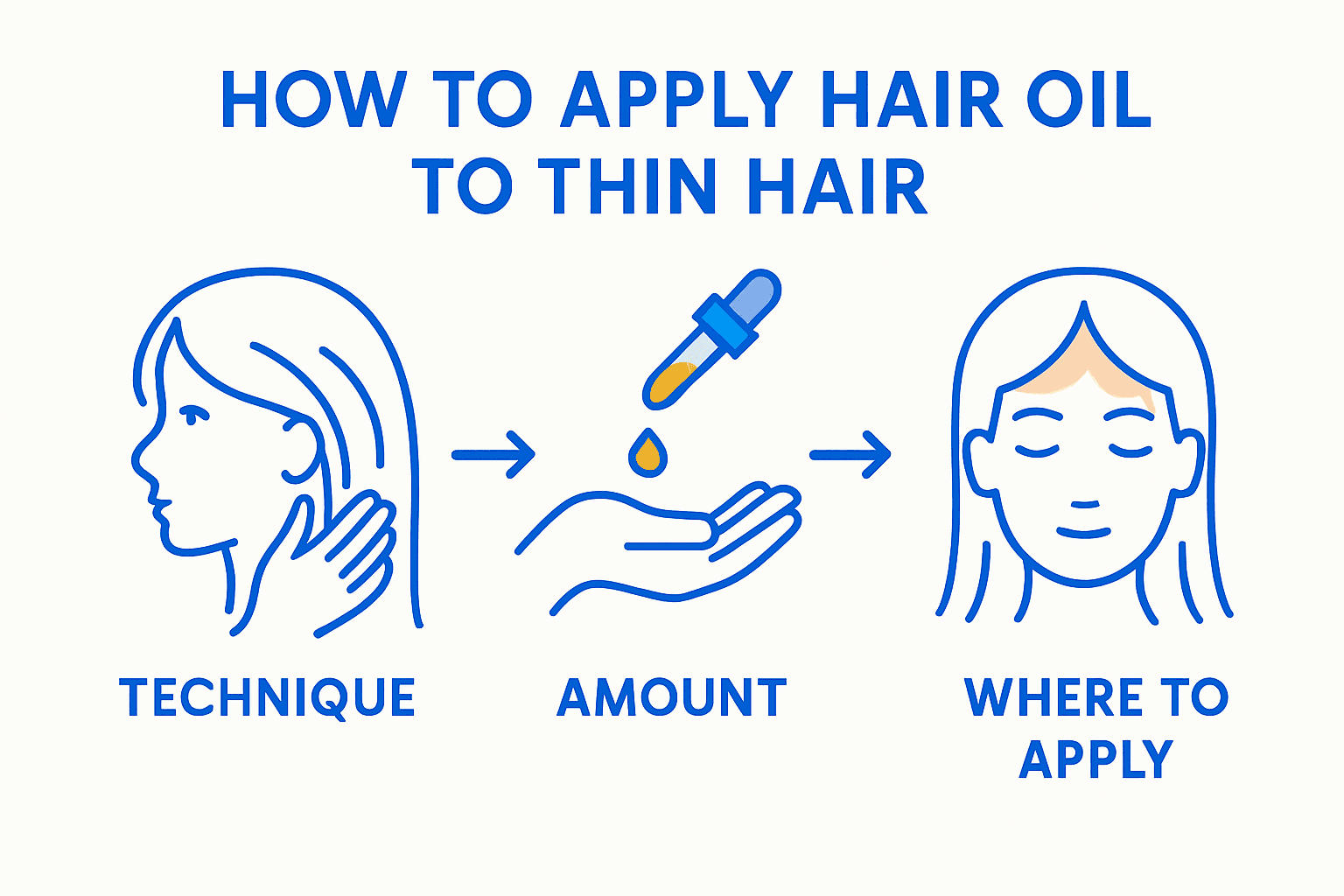Blog
Learning Materials
Best Hair Oil for Thin Hair 2025: Expert Picks
Updated: May 17, 2025

Thin hair needs special attention to look its best. With thin hair being 40 percent more prone to breakage than thicker strands, the stakes are high for effective care. But here’s the kicker: the oils you use could make or break your hair's health. Instead of piling on layers of heavy products, the secret lies in specific lightweight oils that nourish without weighing down your hair. Get ready to discover how the right choices can transform your fine locks into a fuller, healthier mane.
Table of Contents
- Why Thin Hair Needs Special Care
- Choosing The Right Hair Oil For Thinness
- Top Hair Oils To Consider In 2025
- Pro Tips For Applying Hair Oil
- Beyond Oils Other Thinning Hair Solutions
Quick Summary
| Takeaway | Explanation |
|---|---|
| Thin hair requires specialized care | Thin hair is more prone to damage and breakage, necessitating targeted solutions such as lightweight oils and gentle styling techniques to maintain health and appearance. |
| Choose lightweight oils | Selecting oils with a lightweight molecular structure, like argan or jojoba oil, prevents hair from becoming weighed down and helps preserve volume. |
| Use proper application techniques | Apply hair oil in minimal amounts (2-3 drops), targeting the scalp and roots, while avoiding direct application to hair lengths to maximize nourishment without compromising texture. |
| Explore emerging treatments | Innovative therapies like molecular treatments and regenerative medicine are promising for hair restoration and can address the root causes of thinning hair. |
| Consider a holistic approach | Effective hair loss management includes a combination of treatments such as topical DHT blockers, nutrition, and personalized interventions tailored to individual needs. |
Why Thin Hair Needs Special Care
Thin hair requires a nuanced approach to hair care that goes beyond standard hair maintenance routines. Unlike thick hair, thin hair is more vulnerable to damage, breakage, and environmental stressors, making specialized care essential for maintaining its health and appearance.
The Unique Challenges of Thin Hair
Thin hair presents distinctive challenges that demand targeted solutions. The delicate nature of fine hair strands means they are more prone to breakage, have less natural volume, and can easily appear flat or lifeless. Clinical studies have demonstrated that women with thinning hair can experience significant improvements with specialized treatments, showing a potential increase in hair growth density by 10.1 percent over just 168 days.
The structural differences in thin hair make it more susceptible to damage from everyday styling, environmental factors, and chemical treatments. Each hair strand has a smaller diameter and less protein content, which means it requires gentler handling and more strategic nourishment. This vulnerability makes choosing the right hair oil for thin hair critical for maintaining hair health and preventing further thinning.
Targeted Nutritional and Treatment Approaches
Specialized care for thin hair goes beyond surface-level treatments. Research has shown that targeted interventions can dramatically improve hair health. Women receiving specialized treatments experienced a remarkable increase in terminal hair count, rising from 271.0 at baseline to 609.6 after six months.
Key strategies for managing thin hair include:
- Using lightweight hair oils specifically formulated for fine hair
- Implementing gentle styling techniques
- Selecting nutrition-rich products that strengthen hair from the root
Advanced Care Techniques
Emergent research suggests promising approaches for addressing thin hair concerns. Recent scientific studies have explored innovative treatments like JAK inhibitors, which can potentially reawaken dormant hair follicles. These advanced techniques offer hope for individuals struggling with hair thinning.
The complexity of thin hair management requires a holistic approach. This means considering factors like diet, stress levels, hormonal balance, and specific hair care products. Every strand counts when dealing with thin hair, making careful, intentional care not just a luxury, but a necessity for maintaining healthy, vibrant hair.
Choosing the Right Hair Oil for Thinness
Selecting the ideal hair oil for thin hair requires careful consideration of multiple factors. Not all oils are created equal, and for individuals with fine or thinning hair, the wrong product can potentially cause more harm than good.
Understanding Oil Composition and Weight
Thin hair demands lightweight oils that provide nourishment without weighing down delicate strands. Heavy oils can flatten hair, making it appear even thinner and lifeless. Research has demonstrated promising results with specific oils, such as pumpkin seed oil, which showed a 40% mean hair count increase in male patients with androgenetic alopecia after 24 weeks of treatment.
Key characteristics of ideal oils for thin hair include:
- Lightweight molecular structure
- High absorption rate
- Minimal residue
- Nutrient-rich composition
Scientifically Backed Oils for Fine Hair
Certain oils have shown exceptional potential for supporting hair health in thin hair types. Cosmopolitan's clinical review highlighted rosemary oil as particularly effective for hair growth and addressing scalp issues. Rosemary oil not only promotes circulation but also helps strengthen hair follicles without causing excessive build-up.
Other beneficial oils for thin hair include:
- Argan oil: Lightweight and rich in antioxidants
- Jojoba oil: Mimics natural scalp sebum
- Grapeseed oil: Extremely light with high vitamin E content
- Castor oil: Promotes hair thickness when used sparingly
Application Techniques for Maximum Benefit
Proper application is as crucial as oil selection. A double-blind study emphasizing hair growth interventions underscores the importance of strategic treatment. For thin hair, the recommended approach involves:
- Using minimal quantity (2-3 drops)
- Focusing on scalp and root areas
- Gentle massage to stimulate circulation
- Avoiding direct application to hair lengths
The goal is not saturating hair, but providing targeted nourishment. Thin hair requires a delicate balance between hydration and volume preservation. By choosing the right oil and applying it correctly, individuals can support hair health without compromising its natural texture and appearance.
Top Hair Oils to Consider in 2025
As hair care technology advances, selecting the most effective hair oil for thin hair becomes increasingly sophisticated. The landscape of hair oils in 2025 offers innovative solutions tailored to address specific hair thinning challenges and promote optimal hair health.
Scientifically Validated Hair Oils
In recent years, several hair oils have emerged as frontrunners in addressing thin hair concerns. Research from clinical studies reveals groundbreaking insights into hair growth interventions. One standout performer is rosemary oil, which has demonstrated remarkable potential for hair restoration.
A comprehensive 2023 study compared rosemary oil to traditional treatments, revealing its effectiveness in promoting hair growth. Notably, when applied topically for six months, rosemary oil showed comparable results to 2% minoxidil for treating androgenetic alopecia, with the added benefit of causing significantly less scalp irritation.
Emerging Powerhouse Oils
Several oils have distinguished themselves as exceptional options for individuals with thin hair:
- Pumpkin Seed Oil: Clinical research demonstrated a remarkable 40% mean increase in hair count among men with androgenetic alopecia after 24 weeks of treatment
- Castor Oil: Known for its hair thickening properties
- Argan Oil: Provides lightweight nourishment without weighing down fine hair
- Jojoba Oil: Mimics natural scalp sebum, promoting balanced hair growth

Strategic Application and Selection
Choosing the right hair oil extends beyond simply selecting a product. The key lies in understanding individual hair characteristics and applying oils strategically. For thin hair, experts recommend:
- Using minimal quantities (2-3 drops)
- Focusing application on scalp and root areas
- Conducting patch tests to ensure compatibility
- Consistent but gentle application
The future of hair oil treatments looks promising, with ongoing research continually refining our understanding of hair growth mechanisms. As scientific knowledge expands, individuals with thin hair can look forward to increasingly targeted and effective solutions that address their unique hair care needs.
Remember, while these oils show tremendous potential, individual results may vary. Consulting with a hair care professional can help determine the most suitable approach for your specific hair type and concerns.
Pro Tips for Applying Hair Oil
Applying hair oil for thin hair requires precision, technique, and an understanding of your hair's unique characteristics. Proper application can transform your hair care routine from ineffective to extraordinary, maximizing the potential of every drop of oil.

Precise Application Techniques
Research indicates that strategic oil application is crucial for optimal results. Traditional methods recommend a systematic approach that goes beyond simple surface-level coating. For thin hair, the key is minimal product with maximum impact.
Start by warming a small amount of oil between your palms—typically 2-3 drops for fine hair. Gently press and distribute the oil, focusing primarily on the scalp and root areas. The goal is targeted nourishment without overwhelming delicate hair strands. Scientific studies demonstrate that proper oil penetration directly correlates with increased hair thickness and tensile strength.
Timing and Absorption Strategies
Timing plays a critical role in hair oil effectiveness. Herbal hair oil research suggests that gentle massage techniques can enhance scalp circulation and ingredient absorption. Consider these strategic application windows:
- Nighttime application: Allow 1-2 hours of absorption before washing
- Pre-shampoo treatment: Apply 30 minutes before cleansing
- Weekly deep conditioning: Braid hair after application to improve distribution
Common Mistakes to Avoid
Thin hair requires a delicate touch. Avoiding these common errors can significantly improve your hair oil results:
- Overloading with product
- Applying oil directly to hair lengths
- Using oils inappropriate for fine hair texture
- Skipping scalp massage
- Inconsistent application
For individuals with thin hair, the mantra is simple: less is more. Choose lightweight oils, apply sparingly, and focus on technique rather than quantity. Each drop should be purposeful, targeting hair health without compromising volume or causing build-up.
Remember that individual hair responses vary. What works perfectly for one person might require slight modification for another. Patience, consistency, and attentive observation are your best allies in developing a hair oil routine that truly transforms thin, delicate hair.
Beyond Oils: Other Thinning Hair Solutions
While hair oils offer valuable support for thin hair, the landscape of hair restoration and management extends far beyond topical treatments. Emerging scientific research and technological innovations are revolutionizing how we approach hair thinning, providing hope and advanced solutions for individuals experiencing hair loss.
Cutting-Edge Molecular Treatments
UCLA researchers have made significant strides in understanding hair follicle regeneration. Their groundbreaking discovery of a small molecule called PP405 represents a potential game-changer in treating hair loss. This molecule can effectively reactivate dormant hair follicles, offering a promising alternative to traditional treatments.
The implications of such molecular interventions are profound. By targeting the root causes of hair thinning at a cellular level, these treatments go beyond symptomatic management, addressing the fundamental mechanisms of hair loss.
Advanced Regenerative Therapies
Regenerative medicine is emerging as a powerful approach to hair restoration. Innovative techniques now include:
- Adipose-derived stem cell treatments
- Hematopoietic stem cell therapies
- Targeted inflammation reduction techniques
- Personalized nutraceutical interventions
Recent research highlights the potential of antibody therapies and cell-based treatments. These advanced approaches offer unprecedented opportunities by precisely targeting molecular pathways involved in hair follicle regulation and directly addressing the regenerative capacity of hair follicles.
Comprehensive Treatment Strategies
Modern hair loss solutions recognize that effective treatment requires a holistic approach. This means combining multiple strategies:
- Topical DHT blockers
- Advanced nutritional supplements
- Minimally invasive medical interventions
- Personalized genetic analysis
- Lifestyle and hormonal management
The future of hair thinning solutions is personalized and scientifically driven. No longer are patients limited to one-size-fits-all approaches. Instead, emerging technologies allow for highly customized treatment plans that consider individual genetic makeup, hormonal balance, and specific hair loss patterns.
While these advanced treatments show remarkable promise, it's crucial to consult with healthcare professionals who specialize in hair restoration. Each individual's hair loss journey is unique, and what works for one person may not be ideal for another. The key is to remain informed, explore multiple options, and approach hair thinning with a comprehensive, patient-centered strategy.
Frequently Asked Questions
What is the best hair oil for thin hair in 2025?
The best hair oils for thin hair in 2025 include lightweight options like argan oil, jojoba oil, and rosemary oil, which provide nourishment without weighing down fine strands.
How do I apply hair oil to thin hair?
To apply hair oil to thin hair, use 2-3 drops, warm it between your palms, and gently massage it into your scalp and roots, avoiding the hair lengths to prevent weighing it down.
Can hair oil help with hair growth for thin hair?
Yes, certain hair oils, such as rosemary oil and pumpkin seed oil, have shown potential in promoting hair growth and improving hair density for individuals with thin hair.
What should I avoid when using hair oil on thin hair?
Avoid overloading your hair with oil, applying it directly to the lengths of your hair, and using heavy oils that can cause build-up and make thin hair appear flatter.
Transform Your Thin Hair Journey with AI-Driven Insights
Are you tired of managing fragile, thin hair that feels lifeless and breaks easily? The challenges of caring for fine hair can be overwhelming, especially when choosing the right products. With 40% increased susceptibility to breakage, it’s vital to navigate the world of hair care with precision. Discover how personalized solutions can empower your hair health journey.
!
At MyHair.ai, we leverage advanced AI technology to provide personalized hair health analysis tailored specifically for you! Our platform dives deep into understanding your unique hair problems and the effectiveness of hair oils like rosemary and argan oil as discussed in the article. Don’t let fine hair hold you back—track your progress, receive tailored product recommendations, and make informed decisions that resonate with your goals.
Take the first step toward vibrant, healthy hair today! Visit MyHair.ai to upload your hair scan, gain valuable insights, and start transforming your hair care routine in ways you never thought possible.